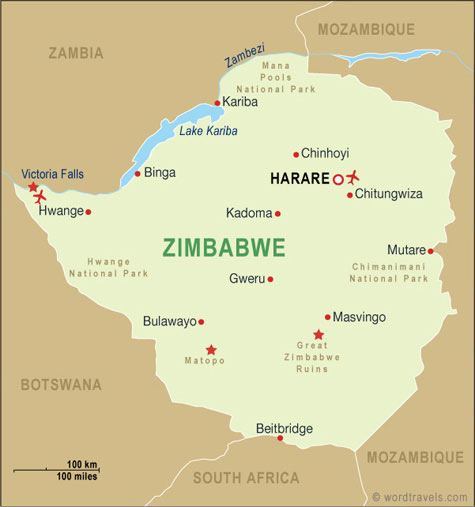
John Mupuro, the Principal Met Officer at the Meteorological Services Department of Zimbabwe, said according to their data, there has been temperature rise during both daytimes and night-times in Zimbabwe.
BY CHIPO MASARA recently in South Africa
“Most of our station data is showing that temperatures are rising. Most scientists are crediting this to greenhouse gases emitted elsewhere and added into the atmosphere,” said Mupuro.
He said the country had also been experiencing a reduction in mean raining days, characterised by heavy downfalls that are punctuated by long dry spells. Mupuro urged people not to cut down trees unnecessarily, or do anything that kills green matter, as doing so would exacerbate the effects on the country of climate change.
The Met officer’s comments were confirmed at a Climate Change Response Dialogue held in South Africa last week.
The outreach event was attended by policy makers in Africa, the climate and disaster risk management community, civil society organisations, science and research community and African media, among others.
According to the Fifth Assessment Report (AR5) presented during the outreach event by the Intergovernmental Panel on Climate Change (IPCC), the impact of climate change can already be seen.
“Climate change is unequivocal — it is undoubtedly happening. We can already see the impact,” said Jonathan Lynn, the IPCC head of communications who is based in Geneva, adding that investments for sustainable development and adaptation to climate change were necessary.
- Chamisa under fire over US$120K donation
- Mavhunga puts DeMbare into Chibuku quarterfinals
- Pension funds bet on Cabora Bassa oilfields
- Councils defy govt fire tender directive
Keep Reading
According to the IPCC reports, it is developing countries that have contributed the least greenhouse gases that will be most impacted by climate change.
Experts say cimate change is expected to culminate in the amplification of the stress on water availability, drastically reducing crop productivity and impacting negatively on all aspects of food security, with maize yield in Zimbabwe and South Africa projected to drop by 30% or more by 2050.
Countries were also warned to expect more prolonged drought and other precipitation anomalies, especially in shallow aquifers, with increased incidences of saltwater intrusion into coastal aquifers due to high rates of groundwater extraction, as well as saltwater ingression from sea level rise.
It is believed there will be an increase in the vulnerability and exposure to hot spells and heat waves, with the 20-year high temperatures event expected to double its frequency and likely to occur in many regions every two years, or annually. The increase in atmospheric temperatures to unprecedented levels is also expected to be accompanied by intensification in the spread of diseases and a destabilisation of plants and animal organisms in water and elevated surface water temperatures in water sources like Lake Kariba.
According to Penny Urguhart — the lead author of the IPCC AR5 Africa Chapter —Africa tops in terms of exposure to climate hazards, adding there were worrying signs the continent may not be able to adapt unless timely action is taken.
“Under high emission scenario, much of Africa could exceed 2 degrees Celsius by mid-century, and reach between 3 and 6 degrees Celsius by 2100,” said Urguhart.
In the face of the threatening impact of climate change, significant financial resources, technological support and institutional and capacity development were needed, said Urguhart.
Poverty and lack of credit is preventing most poor nations from building adaptation capacities.
In order to adapt to climate change and lessen the extent of vulnerability to the phenomenon, African countries were advised to embark on technological adaptation programmes, conservation agriculture that places emphasis on resilient crop varieties, expansion of agro-ecological approaches with an emphasis on climate forecasts that give early warning signs, as well as livelihood diversification.
There were also calls to increase the participation of women, youths and poor vulnerable people in the processes of adaptation policy implementation. In neighbouring South Africa, extensive work is currently underway towards achieving a collective national response to climate change, with most of the country’s thinking reportedly starting from a water perspective.
Speaking during the dialogue, South Africa’s minister of Environmental Affairs, Edna Molewa said her country was transitioning to a lower carbon and climate resilient economy and society.
“If they are still those who are doubtful, please wake up. Climate change is here!” she said, adding that South Africa’s Vision 2030 was “to slice our energy demands by half . . .”
South Africa, like Zimbabwe, currently relies heavily on fossil-based fuels.










